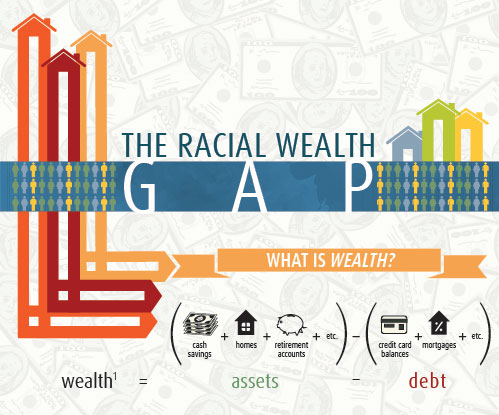hungry
I was hungry and
you blamed it on the communists
I was hungry and you
circled the moon
SNAP began in 1964 when President Lyndon B. Johnson signed the Food Stamp Act as part of his unconditional “War on Poverty.” In his remarks upon signing, Johnson said: “I believe the Food Stamp Act weds the best of the humanitarian instincts of the American people with the best of the free enterprise system. Instead of establishing a duplicate public system to distribute food surplus to the needy, this act permits us to use our highly efficient commercial food distribution system.”
Johnson continued: “It is one of many sensible and needed steps we have taken to apply the power of America's new abundance to the task of building a better life for every American.”
Imagine. Fifty years ago the Food Stamp Act was viewed not as charity, but rather as an ingenious utilization of American enterprise in order to help “build a better life for every American.”
And it is genius.
Many of us may not know what it is like to be hungry, to regularly miss meals, or to consume a diet void of essential nutrients to live a healthy life. Poet, diplomat, and politician Pablo Neruda captures this feeling well in his poem “The Great Tablecloth.” Just before the holidays, millions of Americans learned what some aspect of hunger felt like as they saw a reduction in their SNAP (formerly food stamp) benefits.
On Nov. 1, every SNAP household saw its grocery budget reduced when an $11 billion cut went into effect — the equivalent of 10 million food stamp meals a day. And the program isn’t out of the woods yet. The House and Senate have begun to finalize a farm bill that will impact vital anti-hunger programs. A compromise proposal expected in the coming weeks could further cut SNAP by as much as $8 billion, at a time when lawmakers need to protect and strengthen it.
THURSDAY NIGHT is baking night at Panadería El Latino on 11th Street. Early Friday morning, the bakers pull their weekend supply of pan dulce from the ovens. Racks and racks of conchas, cuernos, and galletas—in eye-popping yellows and pinks—are set out to cool. The entire street is redolent with yeast, cinnamon, and sugar.
From the outside this bakery looks like any another boarded-up building. “The only indication this isn’t a crack den,” one local points out, “is the overwhelmingly delicious smell of baked goods.” El Latino distributes to corner bodegas across the metro D.C. area. But, if you brave the exterior, you can get three sweet rolls for a buck. Bread of heaven!
Extending our tables to feed the multitudes is a practice Jesus asks us to imitate (Matthew 14:16). When Jesus hosted that feast for “more than 5,000” with “only five loaves and two fish,” it was called a miracle. But the mystery wasn’t in magic math. Rather this is a tale of two parties. In Matthew 14:13-21, the dilemma was that there was too little food and too many people. But in the preceding verses, there was too much food and too little humanity.
Matthew 14:1-12 tells the story of Herod’s birthday party. Here, only the upper 1 percent, the elite and powerful, are gathered in a setting overflowing with the rarest wines, mountains of meat, and the finest breads. But Herodias’ daughter demands a different dish. The main course is served to her on a platter: It is the head of John the Baptist.
A straggle of kids came up for children’s time at Poland Presbyterian Church, a 211-year-old congregation established on Lot One, in Township One, in Range One of what was once known as the Connecticut Western Reserve.
The church’s education minister asked them to do this year’s CROP Walk in nearby Youngstown. Two miles, five miles, whatever they can do to raise money for alleviating hunger.
“Seventeen million children will go to bed hungry in America tonight,” she explained.
The message of Christ is not often so clearly presented in American media as it was yesterday, nor is that message as clearly contradicted in the same news cycle.
Yesterday, Pope Francis, while not actually changing any doctrinal stance of the Catholic church, clearly asserted in a rare and frank interview that compassion and mercy must be the light that radiates from the global church for the world to see, rather than the church’s current “obsession” with gays, birth control, and abortion.
At the same time that the pope’s words were cycling through the media, other words were also coming through loud and clear: those of Republican lawmakers who have decided that the least of these will remain just that and, accordingly, voted to slash the food stamp budget by almost $40 billion.
The juxtaposition presented between these two events is striking. It also represents an enormous divide among Christians, and, frankly, demonstrates why so many feel Christianity is a religion full of hypocrisy.
The House of Representatives on Thursday evening narrowly passed a plan that cuts about $40 billion* from the Supplemental Nutrition Assistance Program (SNAP), or food stamps program. The Congressional Budget Office estimates that the move will push nearly 4 million low-income people off of the program in 2014. USA Today reports:
"The House voted 217-210 for the bill that cuts nearly twice as much from food stamps as a bill the House rejected in June. It is also far more than a Senate measure passed earlier this year that would trim about $4.5 billion in spending. The bill failed to draw the support of a single Democrat, many of whom have said the steep cuts would erode a key safety net depended upon by families with children, seniors, veterans and people looking for work."
Earlier on Thursday, Sojourners President Jim Wallis condemned the then-proposed cuts, saying, "These same politicians are not willing to go to where the real money is: the Pentagon budget, which everyone knows to be the most wasteful in government spending, or the myriad subsidies to corporations, including agribusiness subsides to members of Congress who will be voting to cut SNAP for the poor. ... They are going after cuts to the poor and hungry people because they think it is politically safe to do so. So let’s call that what it is: moral hypocrisy."
Check back with Sojourners for details on how your congressperson voted.
If you know the facts and faces of the hungry families that are helped by SNAP, I believe it is a moral and even religious problem to vote to cut them. The Bible clearly says that governmental authority includes the protection of the poor in particular, and instructs political rulers to promote their well-being. So the argument that the poor should just be left to churches and private charity is an unbiblical argument. I would be happy to debate that with any of our conservative Congressmen who keep telling our churches that we are the only ones who should care for the poor. To vote against feeding hungry people is un-Christian, un-Jewish, and goes against any moral inclination, religious or
Finally, for politicians to defend these SNAP cuts because of our need to cut spending generally is un-credible and incredible.
These same politicians are not willing to go to where the real money is: the Pentagon budget, which everyone knows to be the most wasteful in government, or the myriad subsidies to corporations, including agribusiness subsides to members of Congress who will be voting to cut SNAP for the poor.
Tea Party-elected Rep. Stephen Fincher, (R-Tenn.), who likes to bolster his anti-poor rhetoric with misused Bible verses, collected $3.5 million in farm subsidies between 1999 and 2012, according to the New York Times. Fincher is helping to lead the effort to cut food stamps to working families with children by illogically quoting: “The one who is unwilling to work should not eat,” all the while collecting millions of dollars in agricultural subsidies. Congressman Fincher's position is hypocritical — and it's this kind of hypocrisy that makes Christians look bad and turns young people away from the church.
You see, for many House conservatives this isn't really about SNAP, but about their opposition to the idea that as a society we have the responsibility to care for each other, even during the hard times or when resources are few. Conservatives know their ideas for privatizing Social Security or cutting funding to Medicare and Medicaid are politically unpopular, but their ideology of individualism that borders on social Darwinism remains unchanged. SNAP is the perfect target for them. The image of what it does and whom it serves has been widely distorted by the media, while the people who benefit from it have little influence in the halls of Congress and pose little risk to the political careers of Republican members.
Lots of people claim to be “following Jesus” and then they do stuff like this. Sure, people who follow Jesus do these things all the time, but you can't say you are doing them because you are trying to follow Jesus' example.
(Clearly, this is not a complete list but it's a good place to start).
10) Exclude people because they practice another religion.
Jesus was constantly including people, and he did it with a radical disregard for their religion. We do not have a single recorded incident of Jesus asking for a person's religious affiliation before being willing to speak with them or break bread with them. We do have several records of Jesus seeking out those who happen to practice faith differently from him. There was even this one time when he used a hated Samaritan as an example of how we are supposed to take care of each other.
 The United States is the richest country in the world, but only three-quarters of Americans have enough to eat.
The United States is the richest country in the world, but only three-quarters of Americans have enough to eat.
New data from the Pew Research Center shows that nearly a quarter of Americans had trouble putting food on the table last year — 24 percent is a lot of hungry people in the richest country in the world. It’s not normal, either – most other advanced economies had much lower rates of hunger. We think that the U.S. economy is similar to that of Canada or Britain; our hunger rate is closer to that of Indonesia, South Korea, or Greece.
Numbers like that are shocking, because we prefer to think of ourselves in nationalistic terms. “The richest, most powerful country on Earth” definitely makes us feel better than realizing that things aren’t so great for many of us. One in four of us is hungry.
We don’t like to think about this, but we aren’t doing so well by a lot of standards. Last month, UNICEF published a report on child wellbeing in developed countries. The United States was ranked 26 out of 29, above Lithuania, Latvia, and Romania. Our children were doing worse than those of Greece.
Is this really where we want to be?
CLARKSVILLE, Tenn. — We did a focus group here as part of strategic planning at Trinity Episcopal Church.
Question: if you stood on the edge of your church’s property and looked outward, rather than inward as we usually do, what would you see?
A public school kindergarten teacher spoke about kids who come to school hungry and wearing shabby clothing. She started to discuss the family chaos her kids describe during sharing time, but she began to weep and couldn’t speak at all.
Maybe the serpent in the Garden of Eden story actually was a cute little girl in pigtails. Sure would have been more persuasive than some stupid talking snake.
Explaining to kids who have grown up their entire lives with such privilege is almost like trying to translate a foreign language for them. No, not everyone just goes in and grabs whatever they feel like from the fridge or the shelves. They don’t order in when they’re too tired or lazy to cook, and they don’t mark every mundane occurrence in their lives with a celebratory dinner out. It’s normal to them, but that doesn’t mean it’s normal.
“So what are food stamps anyway?” my 8-year-old son, Mattias, asked as I drove him to his summer camp this morning. “Are they, like, stamps that you eat that taste like different foods?”
“Not exactly,” I said.
My family was less than thrilled when I presented the idea of living on the equivalent of what a family of four would receive on food stamps for a week. Actually, the program is now called “SNAP,” which stands for “Supplemental Nutrition Assistance Program,” and involves government-issued vouchers or debit cards, rather than the antiquated stamp method. But the result is the same; we have a lot less to spend on food this week than usual.
“But I don’t want to be poor,” Mattias moaned as I explained the challenge to him.
“We’re not poor,” I said, “but it’s important for us to know what it’s like to struggle to feed our family.”
“Why?”
“Because,” I paused, trying to figure out a way to explain privilege and compassion to a third-grader who was quite content to have all he has, and then some, “Jesus tells us to have a heart for the poor, but how can we really do that if we don’t know anything about what it’s like to live with less?”
“Hmm,” he wrinkled his brow, “I guess we can do it for a few days.”












